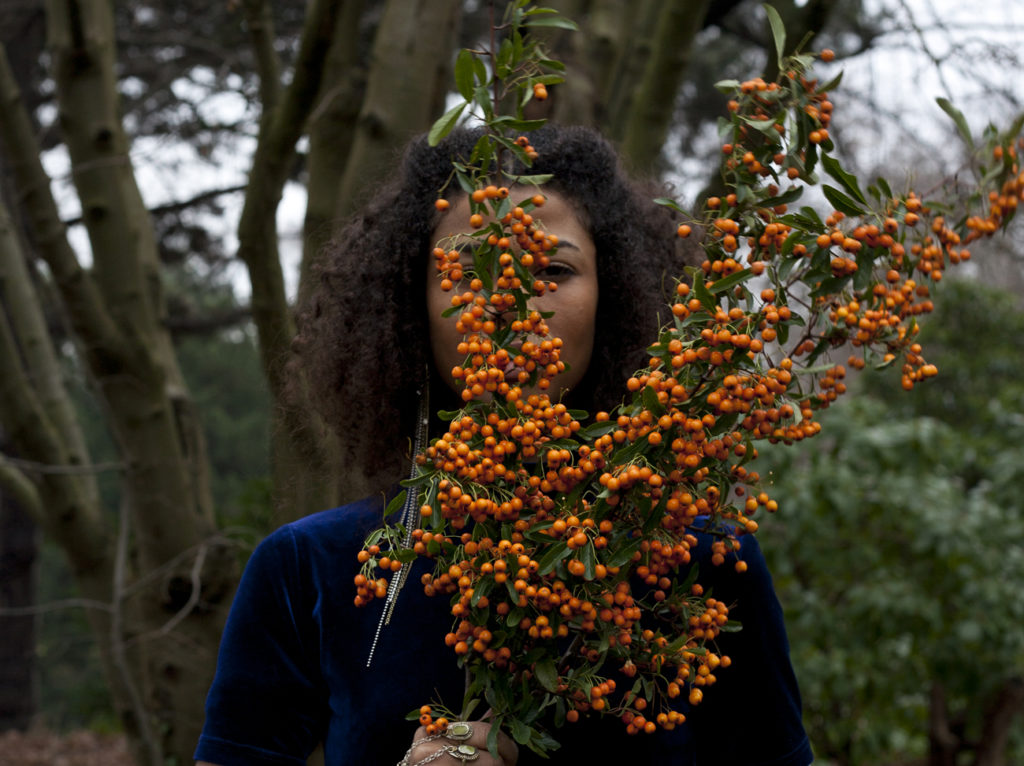Art Fairs
Gallerist Mariane Ibrahim on Showing at the Armory in the Age of Trump
For the young gallerist, the personal is political.

For the young gallerist, the personal is political.

Sarah Cascone

As the art world turns its eyes to the 207 galleries coming to New York for the Armory Show this week, one exhibitor to watch is Seattle’s Mariane Ibrahim.
The gallerist, who founded her space in Seattle in 2012, has kept up an ambitious program of contemporary African art, which landed her on artnet New’s list of 6 Dealers Under 40 to Watch last summer. Her background has also landed her attention as of late; she hails from Somalia—one of seven Muslim-majority countries targeted in President’s Donald Trump’s January 27 executive order.
For Ibrahim, the personal is political, for artists as well as dealers. “Artists have to take part in the discussions, and take political stances,” she told artnet News ahead of the fair. “The gallery is a conduit for their positions.”
She spoke to artnet News about her booth at the fair, and how she finds “refuge in displacement.”
Last year you were included in the Armory’s Focus Africa section, and you also showed during Frieze Week at 1:54 Contemporary African Art Fair. Do you see this year’s Armory appearance as a step up for the gallery, or something else?
The 1:54 Contemporary African Art Fair provides a fantastic platform for artist and collectors. And last year’s Focus section was interesting. Called “African Perspectives,” it didn’t pretend nor did it have the ambition to cover the various artistic expressions from a continent. It was a very short introduction of contemporary art from Africa supported by art dealers.
It is a necessary pain to be part of these boxes [and] it is a natural transition to reach the mainstream… I don’t see my gallery as an African, or American one, but as a global one.

Mariane Ibrahim’s booth at the Armory Show Focus Africa in 2016. Courtesy of Mariane Ibrahim.
What are you bringing to the Armory Show this year?
I will have a solo booth in the Presents section featuring the latest work by Zohra Opoku, a German-Ghanaian artist based in Accra.
Opoku is rebuilding a new narrative for all of us using textile, specifically Kente cloth—silk and cotton fabric made of interwoven cloth strips native to South Ghana, used since 12th century—which belonged to her family. It is an intimate and compelling presentation, specifically made for the fair.
Recent events have demonstrated how we have a tendency to forget the past. The booth, titled “Unraveled Threads,” is an introspective journey. It reveals the complexities of family structure when it is forced to be separated. The threaded pieces are a symbolic reconstruction or reunion of a family that could not live together because of political oppression.
How do Donald Trump’s attempts to crack down on immigration affect your business and your ability to work with certain artists?
The effect is not on the business side. The gallery is not connected to Somalia, and very few know my personal journey.
Of course it has an impact, though. I travel a lot, and this year I was planning to visit two of the countries listed [on the travel ban]. It created a discomfort, and artists are not so keen to come to America. These decisions will affect and derail the free circulation of arts, artists—not only from Muslim countries, but other ones.

Zohra Opoku, Pyracantha (2015). Courtesy Mariane Ibrahim.
Can you tell us a little about your own personal history?
I was born in Noumea, New Caledonia, then lived in Hargeisa (which is today the capital of a self-proclaimed country Somaliland), moved to France few months before the civil war broke in 1987. We knew this was coming, and like any Somali family we were affected and lost relatives. It was a terrible war. The media was diffusing horrible images. Not only do you become “the other” in your new home, but your country is at war and you have no place to return.
I lived with my family, and moved to London to study, then Quebec. I guess at the time, I had an urge and strong desire to explore my identity in the context of other places. Can I be French in London? Or Somali in Quebec? I kept on traveling. I went back to Paris, and moved to Seattle six years ago. Now, I find refuge in displacement; I don’t know geographical boundaries.

Mariane Ibrahim’s booth at 1:54 Contemporary African Art Fair. Courtesy of Mariane Ibrahim.
Has the current political climate impacted the type of exhibitions you are planning?
I have always presented artworks that had a political or militant tint.
This September, I will have a show with Negar Farajiani, who is working in Yazd, Iran. This will affect my programming. I have other projects that will need to go on hold until the situation is clarified—because what is disturbing is to not know what can or will happen. I have never experienced such a mindset. I guess we will have to be more creative to present the work.
It is not part of the gallery’s role [to be overtly political], however the artists have to take part in the discussions, and take political stances. The gallery is a conduit for their positions. We support our artists, and we stand by them.
This interview has been edited and condensed for clarity.